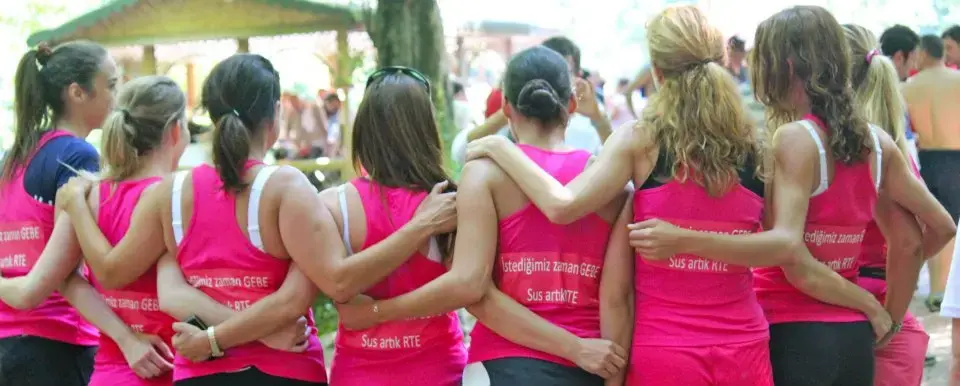They marched, shouted and flooded the Internet with their angry words as well as protest images that some painted on themselves.
"Our bodies, our decision," declared Turkish women, furious over their government's plans to severely limit abortions.
Their fury and the government's very decision to bring up the abortion issue surprised Itir Erhart, a professor of gender and human rights issues at Bilgi University here.
That Turkish women would rally so quickly and loudly around an issue surprised her because of the history of women's rights movements here.
When the Turkish republic was created over nine decades ago, women's rights were imposed along with other moves to quickly modernize the country, she explains. That is, they got their rights without fighting for them.
Whether they have been free to use their rights is another issue. As Andrew Finkel, an American writer and long-time resident in Turkey has written, "Ataturk liberated Turkish women, but forgot to tell the men."
So, too, in 1983 the government approved abortions for up to the first 10 weeks of pregnancy without the kind of struggle over the issue waged by women in other countries, Erhart says.
"Abortion is something we took for granted," she explains.
But that right suddenly appeared in doubt in May when Prime Minister Recep Tayip Erdogan said abortions should be curtailed, and Caesarean births limited. He likened abortions to killing a child after it is born. And he said Caesarean births hurt the nation because they limit mothers' ability to have large families.
As officials from the ruling Justice and Development party later filled in details for Erdogan's plans, they said legal abortions would be trimmed back from the first 10 to 4 weeks. That troubled women's rights advocates who pointed out that such a step would virtually end most abortions.
And then the debate heated up even after the nation's Health Minister told reporters, according to The Associated Press, that the government would take care of children born to rape victims. But he backtracked soon after, saying the government would not bar abortions for rape victims.
Behind the prime minister's words, women saw a drive by the politically powerful political leader to impose his conservative values on a nation that prides itself as a modernized Muslim country.
Within days women organized rallies, dispatched pleas to women's groups worldwide and set up a website that documented their protest: http://benimkararim.org/
At one large rally in Istanbul, Erhart was heartened to see men along with some conservatively dressed women marching along. "You saw people who were personally against abortion, but for ethical reasons they took part."
One of her contributions was to stir fellow members of her running group, known as Step by Step, to wear signs at a race, telling the Prime Minister to shut up and that they'll decide when they want to have a child.
The 37-year-old professor is the mother of a young daughter.
It wasn't just the sense of losing a right, however, that troubled her. It was the fear that without legal abortions, women would resort to dangerous and shady means to end the births, steps that would threaten their lives.
Within a month, the uproar had taken toll on the government's abortion strategy. It dropped talk of halting abortions but went ahead with plans to limit Caesarean births. By now government officials were talking about the high costs of the so-called C-sections and doctors' questionable reasons for relying on them.
In early July 2012, the Parliament approved a law limiting Caesareans for "medical emergencies" only. The law is awaiting the President's approval, according to news reports.
There was a sense of victory among some women that they had won their battle to protect their rights.
But Erhart doesn't feel that way.
It troubles her that men in power – not women - have waged all of the battles lately about women's issues in Turkey. Men, she says, talk about whether women should be allowed to wear scarves in public buildings or whether they should be allowed to have abortions.
"This bothers me most. This is what our fight should be against," she says.









